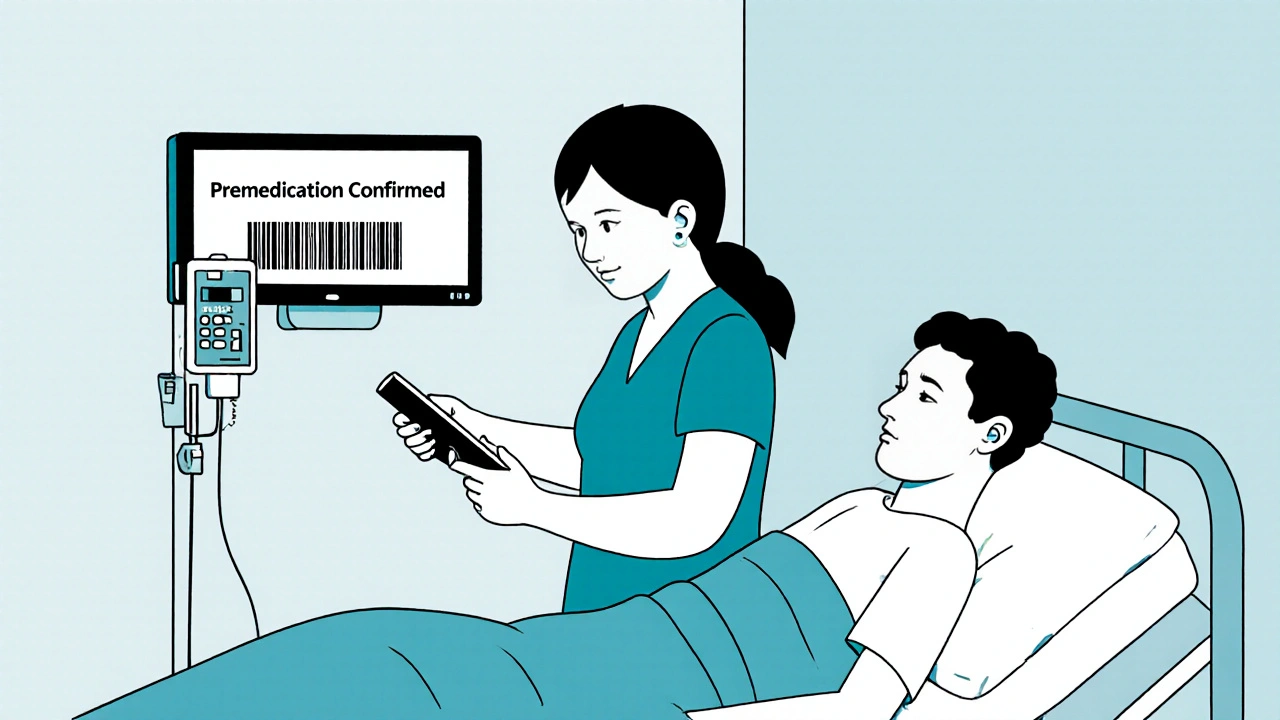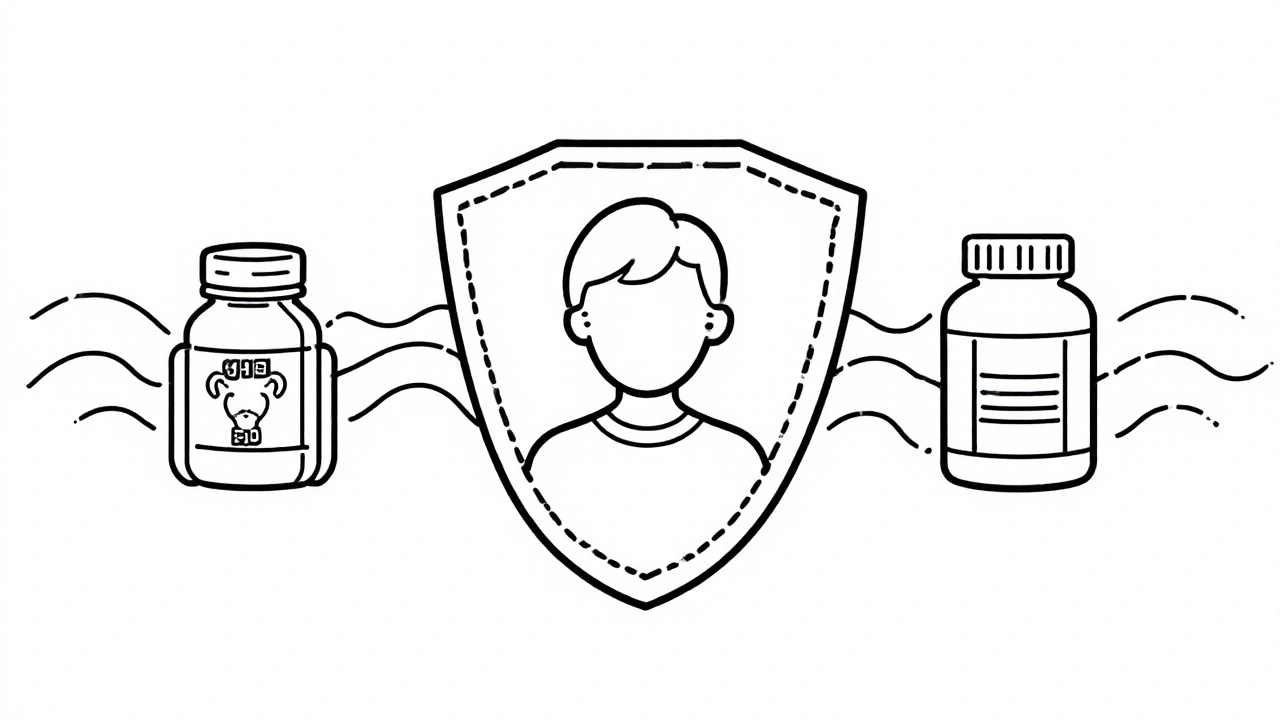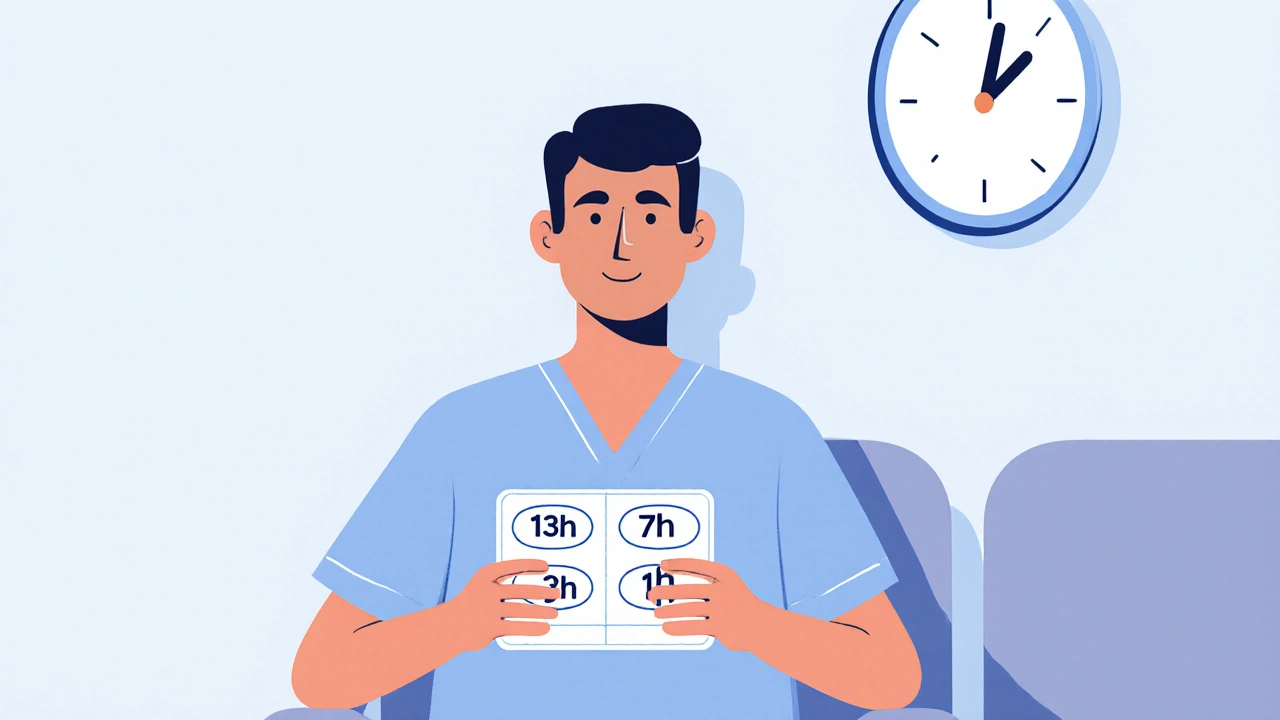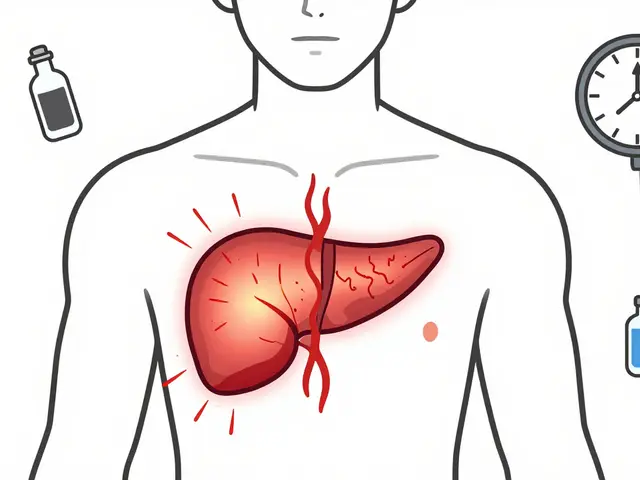Premedication Eligibility Checker
This tool helps you determine if premedication is recommended for your medical procedure based on clinical guidelines. Premedication is only recommended for patients with documented prior reactions to similar contrast media or high-risk chemotherapy.
When you’re scheduled for a CT scan with contrast, or about to start chemotherapy, the last thing you want is to feel sick, break out in hives, or have a scary allergic reaction. That’s where premedication comes in - a simple, proven way to stop bad reactions before they start. It’s not for everyone. But if you’ve had a reaction before, or you’re getting high-risk treatment, premedication with antiemetics, antihistamines, and steroids can make all the difference.
Why Premedication Isn’t One-Size-Fits-All
You might think everyone getting contrast dye or chemo should get these meds ahead of time. But that’s not how it works. Using steroids and antihistamines on every patient doesn’t reduce risk - it just adds unnecessary side effects. The goal is to target people who’ve already had a reaction, not guess who might have one. According to Yale Medicine, premedication is only recommended for patients with a documented prior hypersensitivity reaction to a similar type of contrast media. That means if you had a mild rash during your last CT scan, you’ll likely get premedication before the next one. If you’ve never reacted? You probably won’t need it. This targeted approach isn’t just safer - it’s smarter. The American College of Radiology found that premedication cuts moderate to severe contrast reactions from 0.2-0.7% down to just 0.04%. That’s a 90% drop. But here’s the catch: even with premedication, about 4.2% of patients still get mild reactions, and 0.8% still have moderate ones. So it helps - but it doesn’t guarantee safety. That’s why protocols are strict, and timing matters.How Steroids Work and When to Use Them
Steroids like prednisone and methylprednisolone are the backbone of premedication for allergic-type reactions. They don’t work fast. They need time to calm down your immune system. For outpatients with a history of contrast reactions, the standard is 50mg of oral prednisone taken at 13 hours, 7 hours, and 1 hour before the scan. Why so early? Because prednisone needs about 12 hours to reach peak effect. If you’re getting scanned the same day and didn’t plan ahead, this schedule can be a nightmare. That’s why emergency and inpatient protocols use IV methylprednisolone - 40mg given 4 hours before the procedure. It hits your bloodstream fast and works just as well. Pediatric dosing is different. Kids get prednisolone at 0.7mg per kilogram of body weight, capped at 50mg. For babies under 6 months, diphenhydramine is used instead of cetirizine because their bodies process drugs differently. These aren’t guesses - they’re evidence-based numbers from years of clinical data. The downside? You can’t just pop a steroid pill and walk into your scan. That 13-hour window causes scheduling chaos. One radiology tech on Reddit said they’ve had zero severe reactions since switching to Yale’s protocol - but same-day referrals? They’re a nightmare to manage. Hospitals that use EHR alerts and automated order sets have cut these delays by over 60%.Antihistamines: Old School vs. New School
Antihistamines block the chemicals that cause itching, hives, and swelling. But not all are created equal. First-gen antihistamines like diphenhydramine (Benadryl®) have been used for decades. They work. But they make you sleepy - a lot. A 2021 study in JAMA Internal Medicine found 42.7% of patients on diphenhydramine felt drowsy. That’s more than 4 in 10. For someone heading into a scan, that’s not ideal. You need to lie still. You don’t need to nod off. Second-gen antihistamines like cetirizine (Zyrtec®) are the new standard. They’re just as good at preventing reactions but cause drowsiness in only 15.3% of people. That’s why most hospitals now use cetirizine orally - unless the patient can’t swallow pills, then they go with IV diphenhydramine. Timing matters here too. These meds are given within one hour of the procedure. Give them too early, and they’ve worn off. Too late, and they haven’t kicked in yet. That’s why many clinics now use pre-printed order sets that auto-schedule the dose based on scan time.
Antiemetics: Fighting Chemo Nausea Before It Starts
If you’re getting chemotherapy, nausea and vomiting aren’t just unpleasant - they can make you skip treatments. That’s why antiemetics are part of premedication too. The gold standard today is triple therapy: a 5-HT3 antagonist (like ondansetron), an NK1 antagonist (like aprepitant), and dexamethasone (a steroid). This combo reduces acute nausea and vomiting in 70-80% of patients, according to the American Society of Clinical Oncology. That’s a huge jump from the old days when doctors just gave one pill and hoped for the best. A 2023 meta-analysis in the Journal of Clinical Oncology showed triple therapy cut CINV rates to 28.4%. Dual therapy? Still at 56.7%. The difference is clear. But even triple therapy isn’t perfect. Oncology nurses report 15-20% of patients still get breakthrough nausea, especially with drugs like cisplatin. That’s why some centers now add olanzapine or lorazepam as backups. Dexamethasone is used here for two reasons: it’s a steroid that helps reduce inflammation, and it boosts the effect of the other antiemetics. It’s usually given as a single IV dose before chemo starts. For outpatient chemo, it’s often combined with oral aprepitant tablets taken the day before and after treatment.Where Errors Happen - And How to Stop Them
Medication errors in premedication aren’t rare. A 2022 survey by the American Society of Health-System Pharmacists found 68.3% of hospitals had errors in premedication orders. Over 22% of those reached the patient. Most mistakes happen in three places:- Wrong dose - especially for kids or obese adults
- Wrong timing - giving steroids too late or too early
- Wrong drug - mixing up diphenhydramine and cetirizine because they sound similar

What’s Next for Premedication?
The field is evolving. AI is starting to help. A 2023 study in the Journal of the American College of Radiology built a machine learning model that predicted which patients would react to contrast with 83.7% accuracy. It looked at age, kidney function, prior reactions, and even the type of contrast used. That could one day replace the current “if you had a reaction before” rule with a personalized risk score. New drugs are coming too. Fosnetupitant, a next-generation NK1 antagonist, is being tested in phase 3 trials. It’s longer-lasting and doesn’t need to be taken as a pill - it’s given as an IV injection. That could simplify chemo premedication for patients who struggle with oral meds. But for now, the old standards still win. Triple antiemetic therapy. Oral prednisone 13 hours out. IV methylprednisolone for emergencies. Cetirizine over Benadryl. These aren’t outdated - they’re proven. The American Society of Clinical Oncology still calls triple therapy the standard of care in its 2023 update.What You Can Do
If you’re scheduled for a procedure that might need premedication:- Bring your medical history - especially any past reactions to contrast, dye, or chemo.
- Ask if you qualify for premedication. Don’t assume you do.
- If you’re given oral steroids, take them exactly on time. Set alarms.
- Let your nurse know if you’ve ever had a bad reaction to antihistamines.
- Ask if your hospital uses barcode scanning for meds. If not, ask why.
Do I need premedication for every CT scan with contrast?
No. Premedication is only recommended if you’ve had a prior hypersensitivity reaction to a similar type of contrast media. If you’ve never reacted before, you likely won’t need it. Using steroids and antihistamines on everyone increases side effects without improving safety.
Why do I need to take steroids 13 hours before a CT scan?
Oral prednisone takes about 12 hours to reach its full anti-inflammatory effect. Taking it at 13, 7, and 1 hour before the scan ensures steady levels in your blood when the contrast is given. If you take it too late, it won’t work. That’s why same-day scans are tricky - you need to plan ahead.
Is cetirizine better than Benadryl for premedication?
Yes, for most adults. Cetirizine (Zyrtec®) is just as effective as diphenhydramine (Benadryl®) at preventing allergic reactions, but it causes drowsiness in only 15% of people - compared to 43% with Benadryl. That’s why hospitals now prefer cetirizine unless the patient can’t take oral meds.
What’s the best antiemetic combo for chemotherapy?
The most effective combo is a 5-HT3 antagonist (like ondansetron), an NK1 antagonist (like aprepitant), and dexamethasone. This triple therapy prevents nausea and vomiting in 70-80% of patients, especially with strong chemo drugs like cisplatin. Single or double therapy is no longer recommended for high-risk regimens.
Can premedication completely prevent allergic reactions?
No. Even with full premedication, about 4.2% of patients still get mild reactions, and 0.8% still have moderate ones. The goal isn’t perfection - it’s reducing severe reactions by over 90%. That’s why hospitals still monitor patients during and after procedures, even if they’ve been premedicated.
Are there risks to taking steroids before a scan?
Short-term steroid use for premedication is generally safe. Possible side effects include increased blood sugar, trouble sleeping, or mild stomach upset. These are rare and usually go away quickly. The bigger risk is skipping premedication when you need it - which could lead to a serious allergic reaction.
Why do some hospitals use IV steroids instead of oral?
IV steroids like methylprednisolone work faster - they reach full effect in about 4 hours. That’s why they’re used in emergency or inpatient settings where there’s no time to wait 13 hours for oral prednisone to kick in. Both are equally effective; it’s just about timing and patient access.
How do hospitals prevent mistakes with premedication?
Hospitals use standardized order sets, barcode scanning, EHR alerts, and double-checks by pharmacists. The Institute for Safe Medication Practices recommends verifying patient history, dose, route, and timing before giving any premedication. Facilities that follow these steps reduce medication errors by over 37%.






Ellen Sales
Wow. Just… wow. I had a CT last year and got hives, and they didn’t even ask if I’d had reactions before-I just got Benadryl like it was candy. Reading this made me realize how lucky I am I didn’t go into anaphylaxis. Why are we still treating everyone like a ticking time bomb instead of actually listening to history? This isn’t medicine-it’s guesswork with a clipboard.
Josh Zubkoff
Let’s be real-this whole premedication thing is just a hospital profit center disguised as patient care. Steroids? Antihistamines? You think they’re doing this because it’s safe? Nah. They’re doing it because they don’t want to get sued if someone breaks out in a rash. And don’t even get me started on the 13-hour prednisone schedule-have you ever tried to explain to your boss that you can’t come in because your immune system needs a nap? It’s not science, it’s bureaucracy with a stethoscope.
fiona collins
Great summary. Clear, evidence-based, and practical. Thank you for sharing this.
Karen Willie
I work in oncology and this is exactly what we teach new nurses. Triple therapy isn’t optional anymore-it’s the baseline. I’ve seen patients cry because they finally stopped vomiting after chemo. It’s not glamorous, but it’s life-changing. If your hospital still uses single-agent antiemetics? Ask why. And if they don’t use barcode scanning? Push for it. Small changes save lives.
Jennifer Griffith
so like… if u had a rash once u get steroids for life?? like wtf. my cousin got a ct scan 5 years ago and now every time she goes in they give her 3 pills and benadryl. she’s not even allergic anymore. this is wild. also why is cetirizine so expensive??
Kimberley Chronicle
Excellent synthesis of current guidelines. The shift from first- to second-generation antihistamines represents a paradigmatic evolution in peri-procedural pharmacotherapy-reducing CNS-mediated sedation while preserving mast cell stabilization. The integration of EHR-driven clinical decision support, particularly with automated timing protocols, aligns with ISMP’s Best Practice 15 framework and significantly mitigates iatrogenic risk. That said, the persistent 0.8% moderate reaction rate underscores the need for dynamic risk stratification models, ideally incorporating biomarkers like tryptase or IL-6 kinetics in future iterations.
Pallab Dasgupta
Bro. I’m from India and we don’t have 13-hour prep schedules. We give IV methylprednisolone 4 hours before, and boom-done. No drama. No alarms. No ‘did you take your steroid?’ texts from your nurse. Why are Americans making this so complicated? Also, why is everyone still using Benadryl? I’ve seen people fall asleep mid-scan. That’s not safety-that’s a comedy skit. Get with the program. Cetirizine is cheaper, better, and doesn’t turn you into a zombie. And yes, triple therapy for chemo? Non-negotiable. If your oncologist says ‘we’ll just give you Zofran,’ walk out. You deserve better.
Emily Craig
So let me get this straight-I’m supposed to take steroids at 13, 7, and 1 hour before my scan… but if I’m late? Too bad. No refund. No reschedule. Just a nurse sighing and handing me a pill like I’m a dog needing a treat. And don’t even get me started on the 3am alarm for prednisone. I’m not a robot. I’m a human who just wants to get through a CT without feeling like I’ve been injected with existential dread. But hey-at least I won’t break out in hives. I guess?